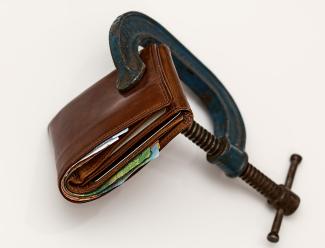
New Year! New Budget Tips!
Budgeting is often highlighted as the best way to gain insight into your finances and plan for the future. When you establish a budget, it is clear where all your money is going each month beyond simple utilities and mortgage/rent payments. You can figure out just how much short- and long-term debt is impacting your finances each month and even decipher the places where you can trim wasteful spending. With a New Year coming soon, it is time to look at some new budget tips for the upcoming year!
Budget with a Goal
The point in creating any budget is to achieve a goal. Most people budget simply to meet the goal of taking control of their financial future, but it does not hurt to set a more specific goal for your budgeting. For example, you could set a goal to save up enough money to meet a down payment dollar figure for a new home or to eliminate the debt you are carrying from student loans.
There is no such thing as good and bad goals for your budget. Heck, you could even develop a budget that sets a goal of saving up enough money for that dream vacation you have always wanted to take to Tahiti or to visit continental Europe. Whatever your goal, you can use your budget to achieve that aim. Your budget will show you how much income you take in for a given month and identify places where you can trim expenses to meet your budgeting goal.
Understand Where Your Money Goes
Regarding the previous point above, one of the greatest benefits of a budget is the ability to provide insight into your expenses. Ideally, you are aware of the major expenses that pull at your income each month, such as a mortgage and car payment. What a lot of people lose sight of are the irregular expenses that come in several small doses throughout the course of time. You may not think much of them in the moment, but they can add up quickly. Understanding where you are spending your money is one of the primary ways of improving your financial situation.
A budget can help you identify those habits that cost you a lot of money. Debt.com notes that most budgeters start by eliminating the so-called "vices" in their life, like gambling, smoking, and drinking. While each little expenditure may seem minor, taken together they can add up to hundreds or thousands in expenses each month.
Manage and Track Your Budget
Finally, put your efforts in building a budget to good use. It is not worth much for you to lay out your finances on a spreadsheet simply to say, "hmm, look at that." For your budget to be effective in the New Year, you must manage it and track any changes toward your goal. When you identify areas of waste, eliminate them from your budget and see how that improves your financial standing with time.
If nothing else, the New Year is always a good time to look at how things are going with your current budget and see where you can adjust. You may find that changes in how you approach budgeting, in general, are required.
Make your money serve you with Paul Miller.

